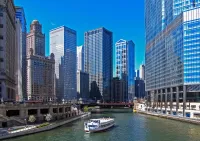Mentioned in this timeline

Google LLC is a multinational technology corporation specializing in a...
Germany officially the Federal Republic of Germany is a nation...

News encompasses information about current events disseminated through various media...
Australia officially the Commonwealth of Australia encompasses the Australian mainland...

Chicago is the most populous city in Illinois and the...
France officially the French Republic is primarily located in Western...
Trending

3 minutes ago Kristi Noem faces affair allegations as questions arise about Corey Lewandowski relationship.
3 minutes ago Broadcom Earnings Anticipated Amid Tech Stock Breakout Predictions and Growth Stock Hopes.

1 hour ago Aaron Rodgers' Potential NFL Free Agency Destinations: Steelers Update and Team Fits.

1 hour ago Reid Hoffman's connection to Jeffrey Epstein and Silicon Valley scrutinized in news reports.
2 hours ago White House briefing addresses Iran war concerns, potential US strikes, and war powers.

3 hours ago Tyler Myers traded to Dallas Stars from Vancouver Canucks for draft picks.
Popular

Ken Paxton is an American politician and lawyer serving as...

Hillary Diane Rodham Clinton is a prominent American politician lawyer...

Jesse Jackson is an American civil rights activist politician and...

Jim Carrey is a Canadian-American actor and comedian celebrated for...

Bill Clinton served as the nd U S President from...

XXXTentacion born Jahseh Dwayne Ricardo Onfroy was a controversial yet...